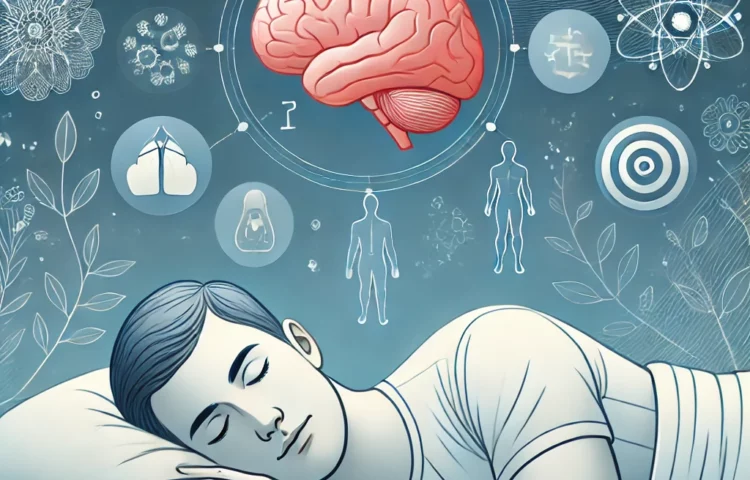Sleep is a universal behavior that is essential for life. Despite decades of research, the precise reasons why we sleep are still being unraveled. This blog post will delve into both the biological and psychological perspectives of why sleep is so crucial for our well-being.
The Biological Perspective of Sleep
From a biological standpoint, sleep serves several critical functions that are vital for survival and overall health.
- Energy Conservation:
- One of the primary biological functions of sleep is energy conservation. During sleep, the body’s metabolic rate decreases, conserving energy for the waking hours. This is particularly important for animals in the wild, where energy expenditure must be balanced with energy intake from food.
- Cellular Restoration:
- Sleep is a time for the body to repair and rejuvenate itself. Cellular repair processes, such as muscle growth, tissue repair, and protein synthesis, occur predominantly during deep sleep stages. Hormones like growth hormone are released, which play a crucial role in these restorative processes.
- Brain Function and Memory Consolidation:
- Sleep is essential for cognitive functions. During sleep, especially during REM (Rapid Eye Movement) sleep, the brain processes and consolidates memories and learned information. This process is vital for learning and memory retention.
- Detoxification:
- Recent studies suggest that sleep helps clear out toxins that accumulate in the brain during the day. The glymphatic system, a waste clearance pathway in the brain, is more active during sleep, helping to remove waste products and reduce the risk of neurodegenerative diseases.
The Psychological Perspective of Sleep
Psychologically, sleep is just as crucial for maintaining mental health and emotional well-being.
- Emotional Regulation:
- Sleep plays a significant role in regulating emotions. Lack of sleep can lead to heightened emotional reactivity and difficulties in managing stress. During sleep, particularly REM sleep, the brain processes emotional experiences, helping individuals to maintain emotional balance.
- Mental Health:
- Sleep is closely linked to mental health. Chronic sleep deprivation is associated with an increased risk of mental health disorders such as depression, anxiety, and bipolar disorder. Adequate sleep is essential for maintaining psychological resilience and emotional stability.
- Cognitive Function:
- Sleep is fundamental for cognitive functions such as attention, decision-making, problem-solving, and creativity. Poor sleep can impair these functions, leading to decreased productivity and performance in daily tasks.
- Dreaming:
- From a psychological perspective, dreaming is an intriguing aspect of sleep. Dreams, which primarily occur during REM sleep, may serve various functions, including processing emotions, problem-solving, and creativity. Some theories suggest that dreaming helps individuals to rehearse and prepare for potential future scenarios.
Factors Influencing Sleep
Several factors can influence both the quality and quantity of sleep, impacting its biological and psychological benefits.
- Lifestyle Choices:
- Habits such as irregular sleep schedules, excessive caffeine or alcohol consumption, and lack of physical activity can negatively affect sleep quality.
- Environmental Factors:
- A conducive sleep environment, characterized by a comfortable mattress, appropriate room temperature, and minimal noise and light, is essential for good sleep.
- Stress and Anxiety:
- High levels of stress and anxiety can interfere with the ability to fall asleep and stay asleep. Effective stress management techniques are crucial for improving sleep quality.
- Medical Conditions:
- Conditions such as sleep apnea, insomnia, and restless legs syndrome can disrupt sleep. Seeking medical treatment for these conditions can significantly improve sleep quality.
Practical Tips for Better Sleep
To harness the full benefits of sleep from both biological and psychological perspectives, consider the following tips:
- Stick to a Sleep Schedule:
- Go to bed and wake up at the same time every day, even on weekends. This helps regulate your body’s internal clock.
- Create a Relaxing Bedtime Routine:
- Engage in calming activities before bed, such as reading, listening to soothing music, or practicing relaxation techniques.
- Optimize Your Sleep Environment:
- Ensure your bedroom is conducive to sleep. This includes having a comfortable mattress, keeping the room cool and dark, and minimizing noise.
- Limit Stimulants:
- Avoid caffeine and alcohol close to bedtime, as they can interfere with sleep.
- Stay Active:
- Regular physical activity can promote better sleep, but avoid vigorous exercise close to bedtime.
- Manage Stress:
- Practice stress-reducing techniques such as mindfulness, meditation, or deep breathing exercises.
Conclusion
Sleep is a complex and essential process that serves numerous biological and psychological functions. By understanding why we sleep and adopting practices to improve sleep quality, we can enhance our overall health and well-being. Prioritize sleep as a key component of a healthy lifestyle, and enjoy the myriad benefits it offers for both body and mind.
